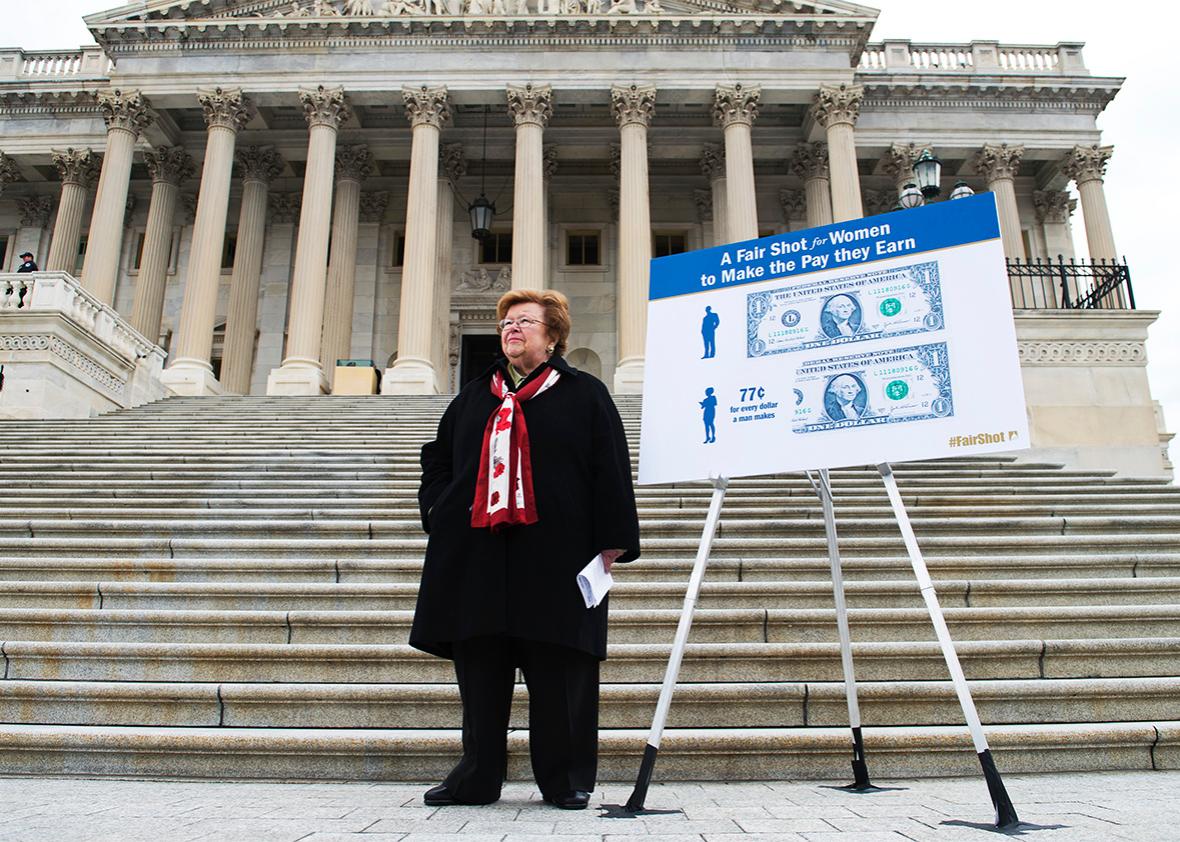This week, California is making progress on one of the most intransigent issues facing women: paycheck fairness, which has barely budged in a decade. On Tuesday, Democratic Gov. Jerry Brown will sign an update to the state’s Fair Pay Act—and the new version is being lauded as the toughest in the country on the forces that keep women at a disadvantage. That’s not the only pro–pay equity measure sitting on Brown’s desk. Last month, the California Legislature sent him a bill that would tackle the issue in a way that no other state has ever attempted; he has until Sunday to sign or veto it and has yet to indicate what he’ll do.
First, what’s so great about California’s new Fair Pay Act? Most important, it requires that employees receive equal pay for “substantially similar” work, even if their job titles aren’t actually the same as their colleagues’. This language is intended to cover more female workers and capture more subtle gradations of inequality than the truism of “equal pay for equal work,” which is enshrined in the federal Equal Pay Act. As DoubleX contributor Bryce Covert has written at ThinkProgress, there was a groundswell of support for the standard of “comparable” or “substantially similar” work in the 1980s. Twenty states adopted this kind of language—the movement that really spawned the idea of “pay equity”—and, as a result, “more than 335,000 women got a raise and 20 percent of their gender wage gap was eliminated,” Covert reports. Unfortunately, many of those statutes have since lapsed.
But California is trying to bring the concept of “pay equity” back into vogue—and to expand on it. The new bill gives women some additional leverage by specifying that they can demand equal pay with workers at different physical sites; the law applies to anyone doing comparable work for the same company. It also bars employers from retaliating against workers who discuss their own pay or seek information about others’. California women are doing better than American women overall—making an average of 84 cents on the dollar, versus 78 cents nationwide—but the gap for women of color is among the worst in the country: Latina women in the state made 44 cents for every dollar a white man earned in 2014. “We’re closing all the loopholes,” said California state Sen. Hannah-Beth Jackson, who wrote the bill. “No more excuses.”
There’s another big loophole that can keep women trapped in a cycle of inferior compensation, and that’s what a second bill on Brown’s desk seeks to remedy. It would prohibit employers from seeking an applicant’s salary history, except in cases where pre-existing law requires that information to be publicly available. As Mariko Yoshihara of the California Employment Lawyers Association, which supports the bill, put it to me in an email, “As we see it, women can address pay inequity in two ways—sue their employer, or change jobs.” The bill would free women to take the latter route and to enter salary negotiations without fear that recruiters would take as a starting point exactly the low numbers they were trying to escape. As Yoshihara writes, “Women (and all workers really) should be able to negotiate salary based on market rate and qualifications, not prior salary.”
California is providing women’s advocates with some long-overdue encouragement, almost exactly a year after Senate Republicans unceremoniously quashed a federal Paycheck Fairness Act. The tough new Fair Pay Act even had bipartisan support, and the imprimatur of the state Chamber of Commerce—as if we needed another reminder that state governments work far better than our sorry U.S. Congress.
